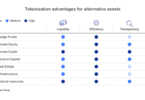Today Bloomberg reports that Animoca Brands has downgraded its target for its web3 fund, Animoca Capital, to $1 billion. In a Nikkei interview in late November, Animoca said it was looking to raise $1 to $2 billion to invest in blockchain and metaverse startups. By that stage, the impact of the FTX collapse had already hit home. Meanwhile, it was quietly revealed on New Year’s eve that Animoca Brands had failed to file its accounts for 2020.
“It is fair to say it’s a challenging market. But we have quite a bit of interest,” said Yat Siu, Animoca Brands co-founder told Bloomberg. He said the FTX collapse heavily impacted about a dozen of its portfolio firms, but that’s a fraction of its total portfolio.
Animoca Brands is already a prolific investor in the sector and says it has backed 380 startups. It has some significant successes, such as The Sandbox metaverse and has invested in many of the major web3 and metaverse successes, such as Dapper Labs and Decentraland. There’s little question the company knows how to create and move fast.
However, if there’s one thing that the FTX debacle demonstrates, it’s that the ‘boring stuff’ matters, like proper accounting records, reporting and governance.
Before we delve into the accounting issues, it’s worth noting that Animoca’s unaudited figures from before the May crash indicated strong returns. At the end of April 2022, it had an investment portfolio valued at $1.5 billion, cash of $98 million, and third party tokens worth $659 million. It also had $4.2 billion of its own affiliated tokens, which it (correctly) did not include on the balance sheet.
Not including its own tokens, despite a 60% plus decline since May, the balance sheet may now be worth close to the amount raised from investors, which is approaching $900 million, according to Crunchbase. If that’s the case, what’s the hold-up with its accounts?
Several days ago, we asked Animoca for details about the cause of the delay, the accounting issues, and its current auditor but didn’t receive a response.
Animoca’s accounting challenges
On New Year’s eve, a very quiet news time, TheBlock published a favorable piece about Animoca’s latest accounting delay. Animoca was due to file accounts for 2020 at the end of 2022 (already extremely delayed), and received permission to delay for another three months, or almost two years late. In Australia, we believe the filing deadline for a company like Animoca Brands is four months after the year end.
This is just the latest of Animoca’s accounting challenges which include:
- Being delisted by the Australian Securities Exchange (ASX) over accounting issues
- Repeatedly delaying filing accounts resulting in fines by regulator ASIC
- It previously fired top 10 auditor Grant Thornton
- The replacement auditor is tiny but affiliated with a larger network
- Animoca has a habit of referencing the larger network as auditors
Animoca Brands last published accounts were for 2019, three years ago. Since then, it has raised more than $750 million.
The 2019 accounts were audited by DFK Collins, which is an affiliate of DFK international. However, DFK Australia and New Zealand comprises 14 independent firms, so Animoca’s auditor is small.
Our Linkedin research last year showed six employees of DFK Collins, and this year shows just three, two of whom have the same surname. This is in no way a criticism of DFK Collins. However, Animoca is not a small firm anymore. For auditors to be truly independent, it is ideal for there to be a match between the size of the auditor and the firm being audited to avoid the risk of the audit fee swaying decisions.
Animoca’s repeated delays could now work against it because many audit firms have withdrawn from the cryptocurrency sector, and affiliates will be under the spotlight for their crypto work. After the FTX collapse, several cryptocurrency exchanges started publishing proof of reserves which were falsely being portrayed as audits. If accountants damage their reputations over crypto audits, it impacts the credibility of the bulk of their work which is not crypto-related. Hence the withdrawals. And the likely increased scrutiny of affiliates such as DFK Collins.
That’s not to say that crypto accounting is a breeze. It’s not. Animoca avoided putting its own tokens on its balance sheet in 2019. FTX was a textbook example of what can go wrong if you do. Apart from the house of cards, there’s the issue of falsely attributing the market price of a small number of circulating tokens to a much larger number of restricted tokens held by the issuer.
However, if Animoca managed to publish audited results for 2019 (in July 2022), the principles should be the same for 2020 and 2021, although the activity during those periods was very prolific.







